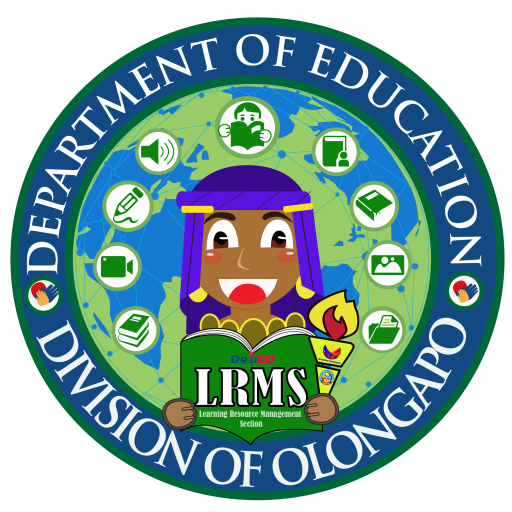Olongapo Division Benchmarks Library Practices in San Jose Del Monte
San Jose Del Monte, Bulacan – September 15, 2025 — The Schools Division Office of Olongapo City, led by EPS–LRMDS Raquel F. Queyquep with CID Chief Eleonor C. Cayabyab, Division Engineer Engr. Justin Espiritu, and PDO II Baby Lea C. Divino, conducted a benchmarking visit to schools and the San Jose Del Monte Library Hub.
Hosted by Rolando T. Sotelo, DEM, CID Chief; Annalyn German, EPS–LRMDS; and Mark Francis P. Fulgado, Librarian II, the team visited San Jose National High School, Francisco Homes Elementary School, and Sapang Palay National High School to observe library facilities, management systems, and reading programs.
The activity highlighted the Library Hub’s centralized system for book distribution and cataloging, as well as schools’ efforts in promoting reading culture. Key takeaways emphasized the need for stronger collaboration, upgraded facilities, and the adoption of innovative technologies to further improve library services and literacy development in Olongapo City.
Olongapo City Schools Division Holds Market Scoping for Supplementary Learning Resources
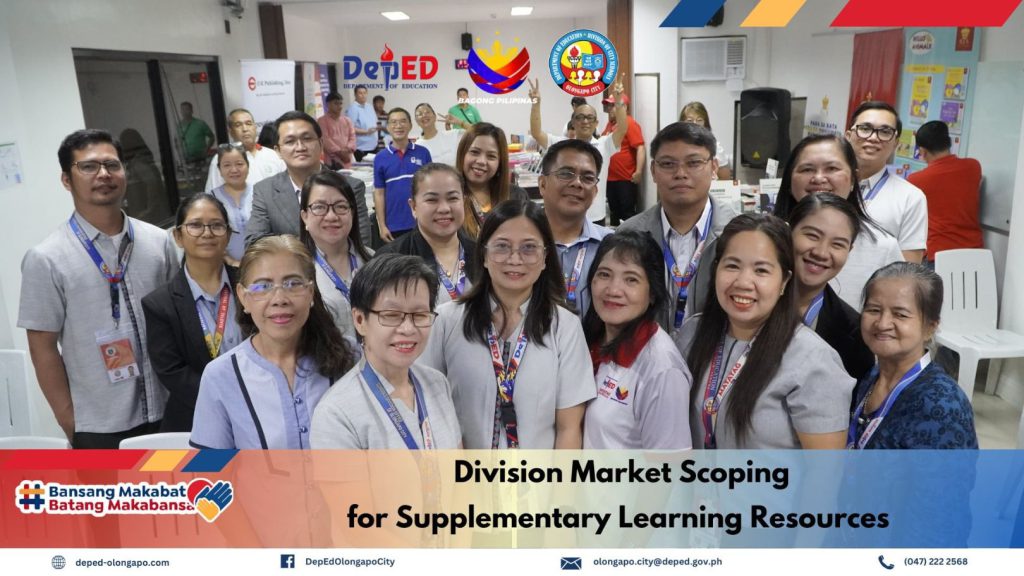
The Schools Division Office (SDO) of Olongapo City organized a Market Scoping and Exhibit Viewing for Supplementary Learning Resources at the SDO Conference Hall. The event brought together school leaders, supervisors, and 11 publishing houses to help expand access to quality educational materials.
Dr. Eleonor C. Cayabyab, Chief of the Curriculum Implementation Division (CID), stressed the importance of providing teachers and learners with relevant and innovative resources that keep pace with the changing needs of education.
Dr. Raquel F. Queyquep, Education Program Supervisor for the Learning Resource Management and Development Section (LRMDS), shared the objectives of the activity, emphasizing its role in ensuring schools are well supported with supplementary materials. The initiative was made possible with the support of Ms. Mary Onyx M. Umayam, Librarian II, and Ms. Baby Lea C. Divino, Project Development Officer II, who also introduced the participating publishers.
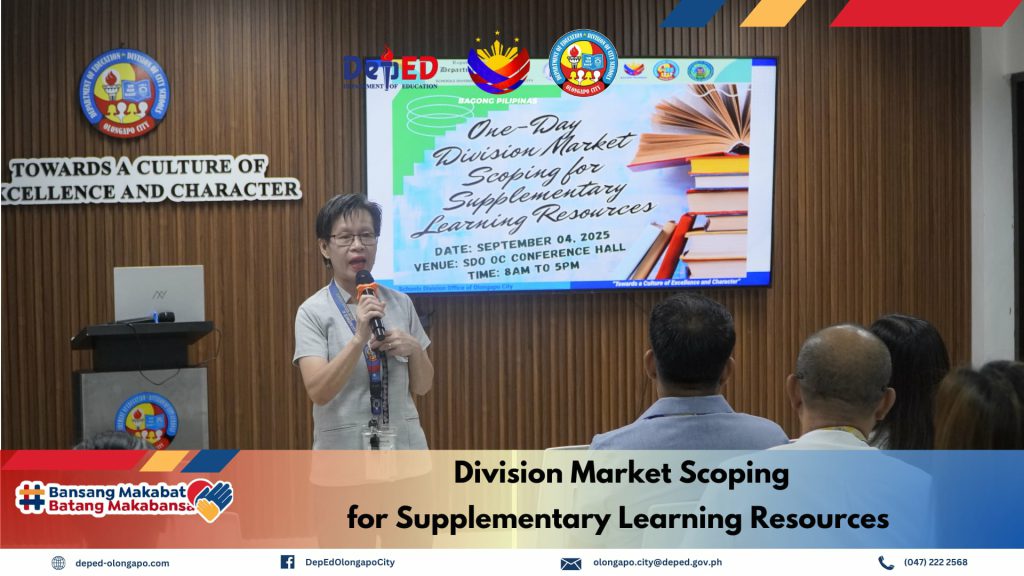
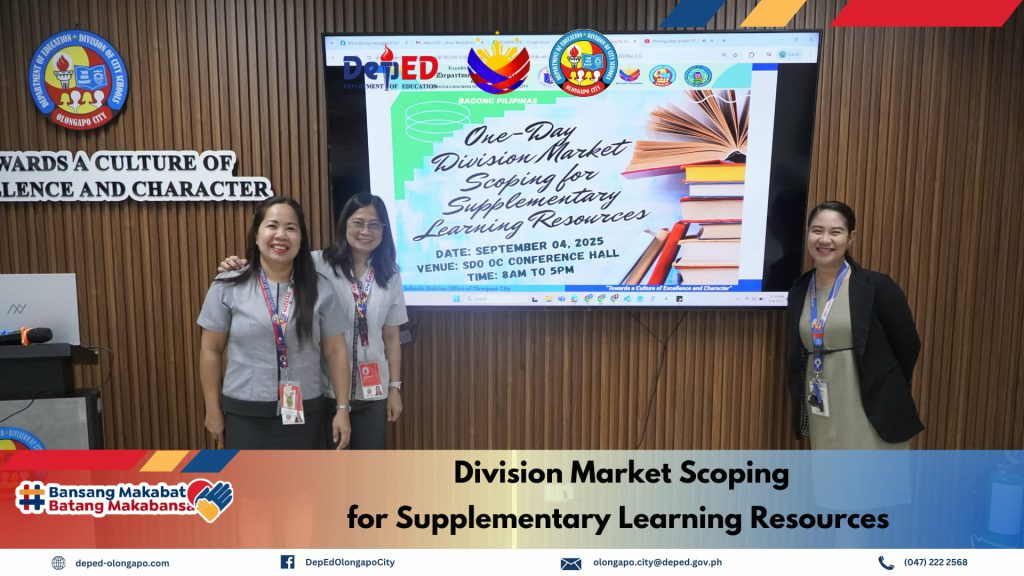
The publishing houses that joined the exhibit included Abiva Publishing House, Inc., Book on Wheels, Bookware Publishing Corporation, C & E Adaptive Learning Solutions, Haring Ibon, Lampara Books, Learnovate, Phoenix Publishing House, Rex Education, TechFactors Inc., and Vicarish Publication & Trading Inc. Each showcased a variety of learning resources designed to support teaching and learning in schools.
The activity also became an opportunity to thank the Schools Division Superintendent, Assistant Schools Division Superintendent, supervisors, principals, assistant principals, and teachers for their support in making the event possible.
In her message, Dr. Imelda P. Macaspac, Assistant Schools Division Superintendent and Officer-in-Charge of the Schools Division Superintendent, highlighted the value of building strong partnerships with publishers. She noted that such collaboration is vital in enriching learning opportunities and improving the quality of education in Olongapo City schools.
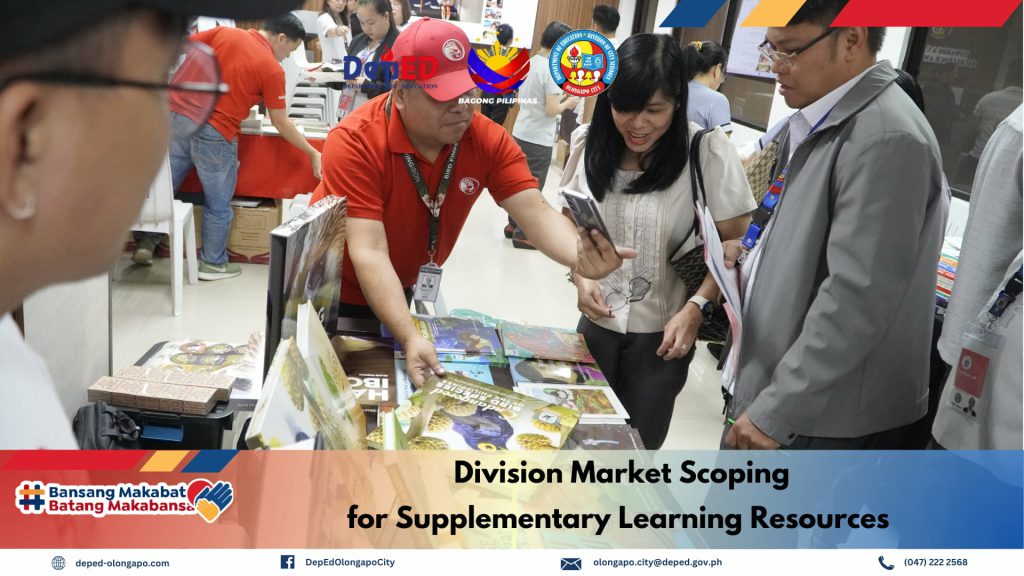
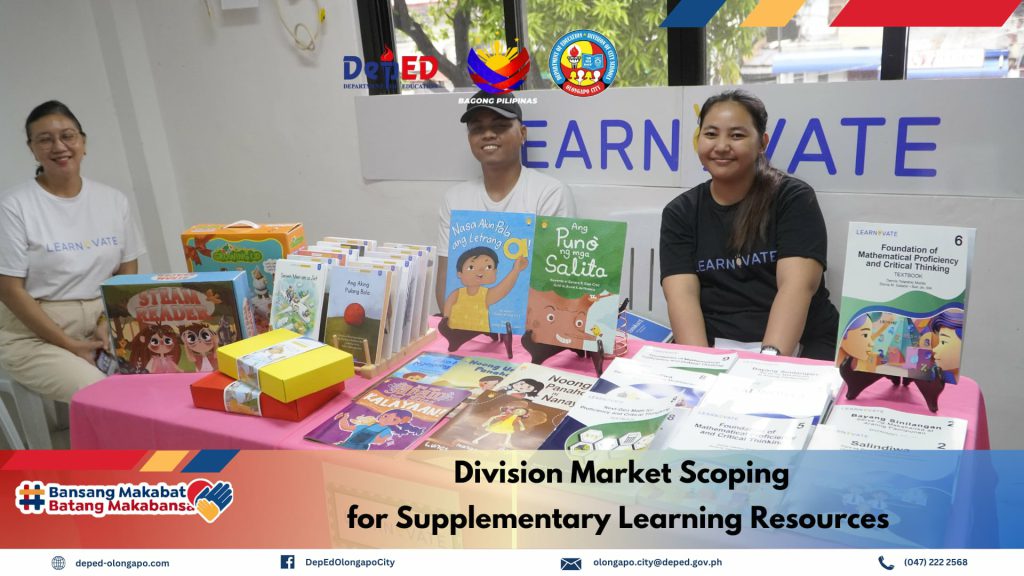
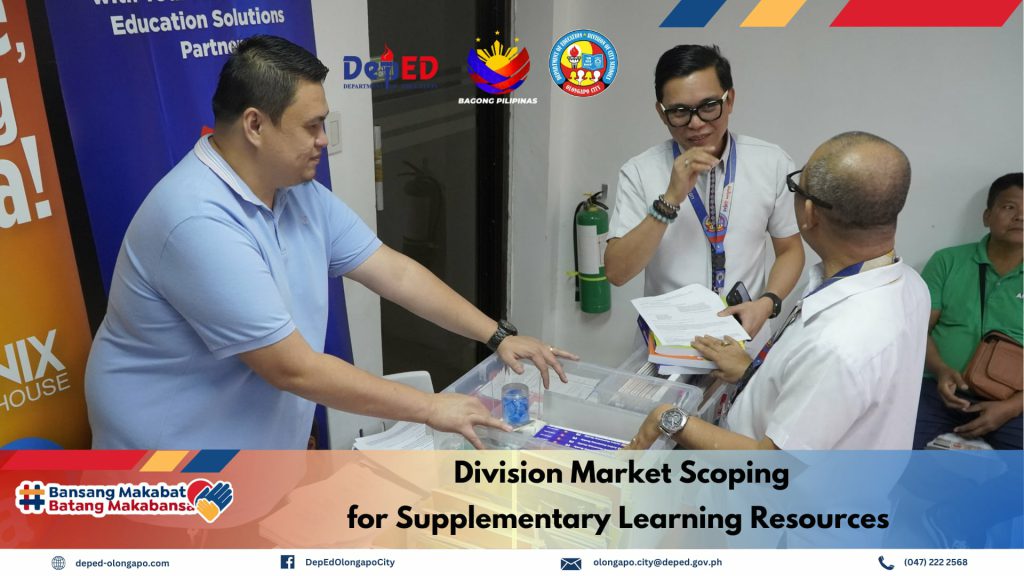
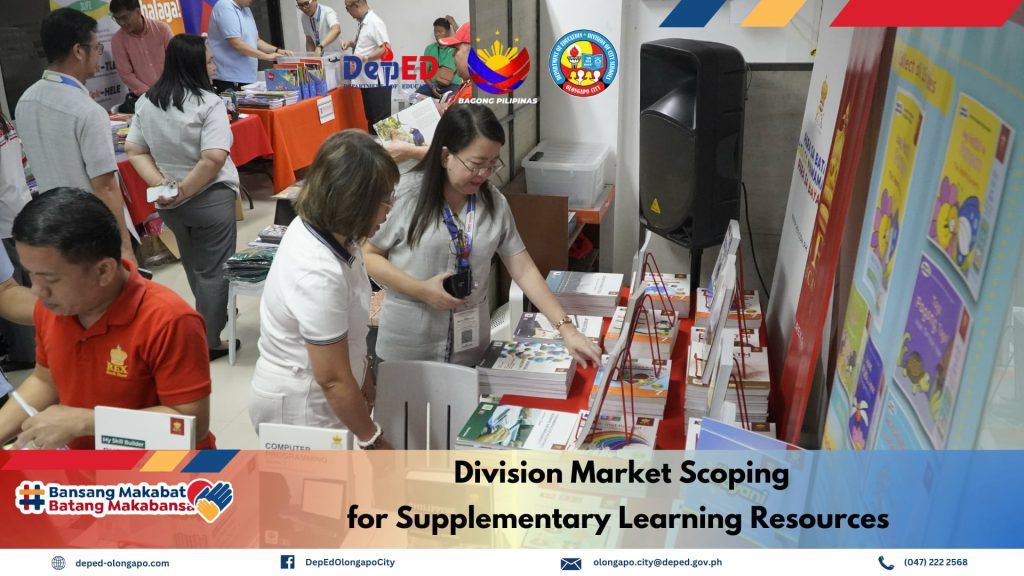
Schools Division Office Joins Regional Market Scoping for Library Materials April 30 – May 2, 2025
In a continued effort to improve access to quality learning resources, representatives from the Schools Division Office actively participated in the Regional Market Scoping for Supplementary Learning Materials, held from April 30 to May 2, 2025.
The three-day regional activity brought together education stakeholders to carefully evaluate and select supplementary materials intended for Library Hubs and school libraries across the region.
The first day of the event was dedicated to the selection of supplementary learning materials, where participants reviewed a wide array of resources to ensure alignment with the current curriculum and learner needs. On the second day, the teams worked on the encoding of priority lists, classifying selected materials based on their educational value, usability, and relevance. The final day focused on the consolidation and finalization of the lists, marking the completion of the review and selection process.
“This activity was both challenging and rewarding,” said one delegate. “We are proud to have contributed to the careful curation of materials that will enhance student learning experiences.”
The Schools Division Office expressed its deep appreciation to Dr. Imelda P. Macaspac, Schools Division Superintendent, for her trust and confidence in the team’s capacity to represent the division in this vital initiative. The office also extended its gratitude to the Learning Resources Management and Development System (LRMDS) team, led by EPS Madam Raquel Favila Queyquep, RL, for their consistent guidance, technical support, and facilitation throughout the process.
This initiative reflects the ongoing commitment of the Department of Education and its local offices to promote literacy and improve educational outcomes by enriching the learning environment with high-quality, relevant supplementary materials.
"Celebrating Collaboration and Innovation: Acknowledging the Success of the Microlearning Resource (MLR) Prototype Enhancements"
The team expresses heartfelt gratitude to the remarkable individuals and groups who contributed to the successful completion of the enhancements to the Microlearning Resource (MLR) prototype.
Acknowledgment is extended to Madam Imelda P. Macaspac, PhD, Schools Division Superintendent; Madam Ilynne Samonte, Assistant Schools Division Superintendent; and Madam Eleonor C. Cayabyab, Chief of CID, for their unwavering support and commitment to providing continuous training opportunities, even during consecutive weeks.
Special appreciation is given to the supportive school heads and unit head:
- Sir Arthur Aquino, ITO
- Madam Amalia Abayan of OCABIS
- Sir Sandy Cabarle of OCNHS
- Madam Mercedita Fernandez of Tapinac Senior High School
The NTWG AP 7 SDO Olongapo Team also deserves special thanks:
- Sir Allen Tuyugon, EPS-AP
- Sir Jeffrey De Leon, EPS-Filipino
- Sir Amrah Phil Solano, HTI
- Sir Nike P. Agustin, OIC, Assistant Principal
- Madam Baby Lea Divino, PDO II
- Madam Evangeline A. Lobo, Librarian II/AP
- Sir Jannsen S. Bayog, AA III
The other Division of Group 4 – AP 7 Teams from SDO Laoag City and Balanga City, as well as the specialists from the Bureau of Curriculum Development and the Bureau of Learning Delivery, are also acknowledged for their invaluable support and collaboration.
Gratitude is extended to the resource persons:
- Mr. Jerking G. Pingol, Art Director, GMA Network
- Mr. Valentino Nool Jr., Senior Multimedia Designer, Centro Escolar University
Acknowledgment is also given to:
- Atty. Ariz Delson Acay D. Cawilan, Director IV, BLR
- Sir Edward Jimenez, Director III, BLR
- Madam Bessy Agamata, Chief Education Program Specialist
A special mention is made for Sir Kelvin Tolentino, Senior Education Program Specialist, BLR, whose leadership and vision served as the driving force behind the program’s success.
These achievements were made possible through a series of key activities, including:
- Consultative Workshop on the Finalization of Microlearning Resource (MLR) Prototypes Guidelines and Standards, held via Microsoft Teams from October 7 to 11, 2024.
- Orientation and Capacity Building Workshop for the National Technical Working Group (NTWG) on Microlearning Resource (MLR) Prototypes Development, conducted at the DepEd NEAP Region II facility in Tuguegarao City from October 14 to 18, 2024.
- Capacity Building of Learning Resource Evaluators (LREs) on Evaluation (Quality Assurance) of Microlearning Resource (MLR) Prototypes, held at DEPED NEAP Region VII, ECOTECH Center, Sudlon, Lahug, Cebu City, from November 4 to 8, 2024.
- Field Validation of the Developed Microlearning Resource (MLR) Prototype (National Capital Region), conducted in Quezon City from December 5 to 6, 2024.
- Enhancement and Finalization of the Developed Microlearning Resource (MLR) Prototype, held at DEPED NEAP Region VII, ECOTECH Center, Sudlon, Lahug, Cebu City, from December 9 to 13, 2024.
As this milestone is celebrated, recognition is given to the 90 dedicated participants from eight (8) regions and NCR, representing 16 divisions, who worked tirelessly through four intensive phases to elevate learning, support educators, and inspire students.
These prototypes symbolize hope, collaboration, and a brighter future for education. The commitment to unity and selflessness will continue to inspire the creation of a lasting legacy and remarkable achievements in the field of education.
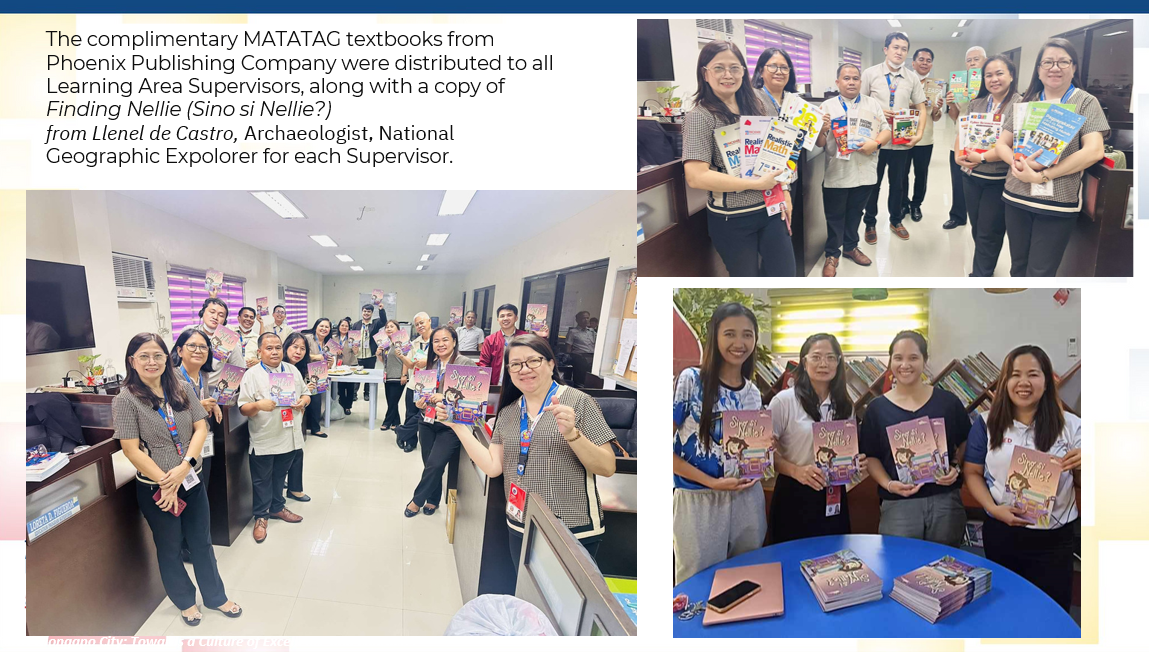
Capacity Building of Learning Resource Evaluators (LREs) on Evaluation and Quality Assurance of Microlearning Resource Prototypes
The Capacity Building of Learning Resource Evaluators (LREs) on Evaluation and Quality Assurance of Microlearning Resource Prototypes program aims to strengthen the evaluative skills of participants in assessing and assuring the quality of microlearning resources. This initiative focuses on equipping LREs with practical tools and methodologies for evaluating prototypes based on microlearning principles, including content accuracy, instructional design, accessibility, and relevance. Through a combination of theoretical sessions on microlearning fundamentals and hands-on practice, participants learn to apply advanced evaluation and quality assurance techniques, refining prototypes through structured peer reviews and constructive feedback. The program not only enhances their technical skills in resource evaluation but also empowers them to support the development of high-quality, effective learning materials that meet rigorous educational standards
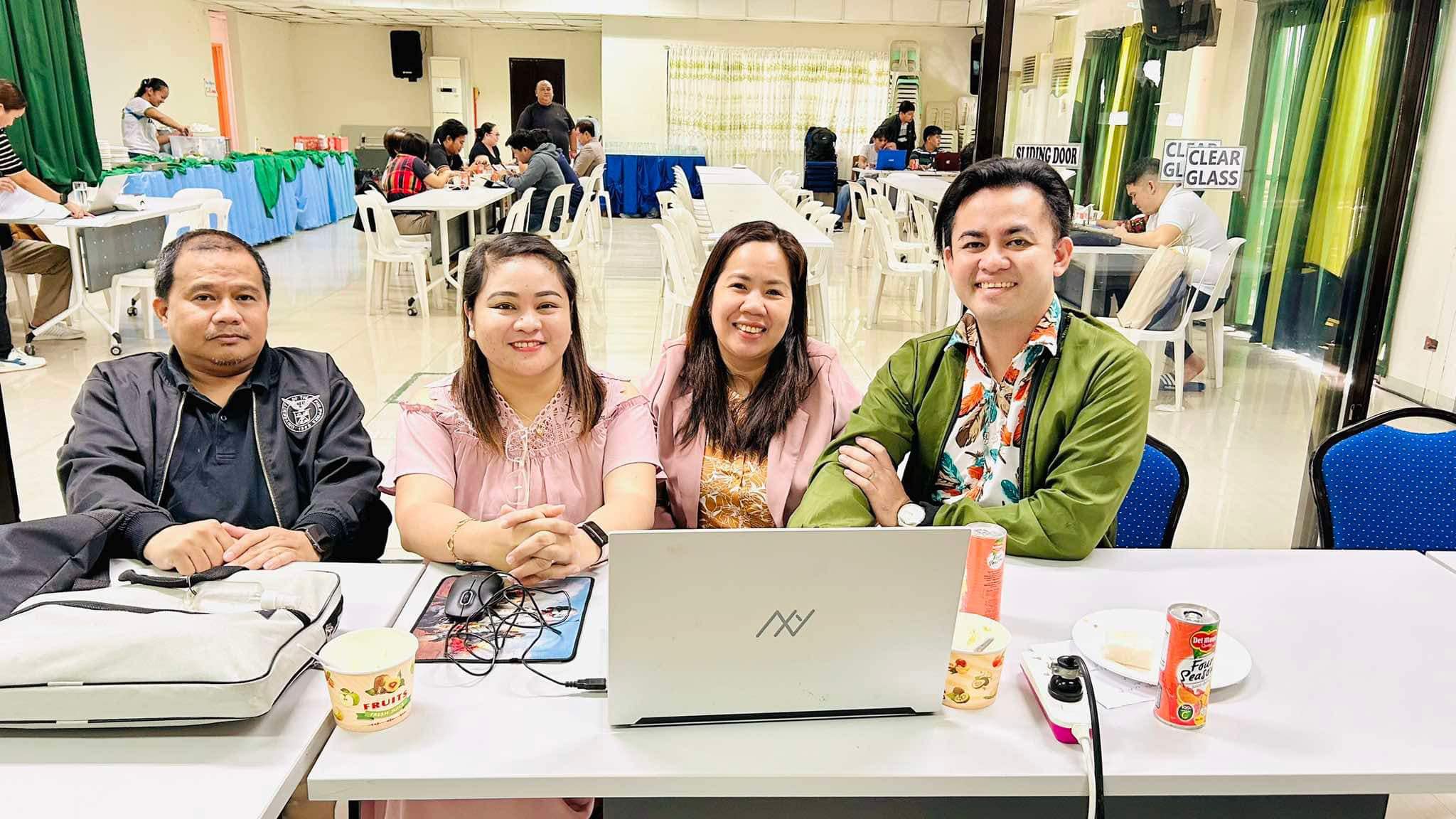
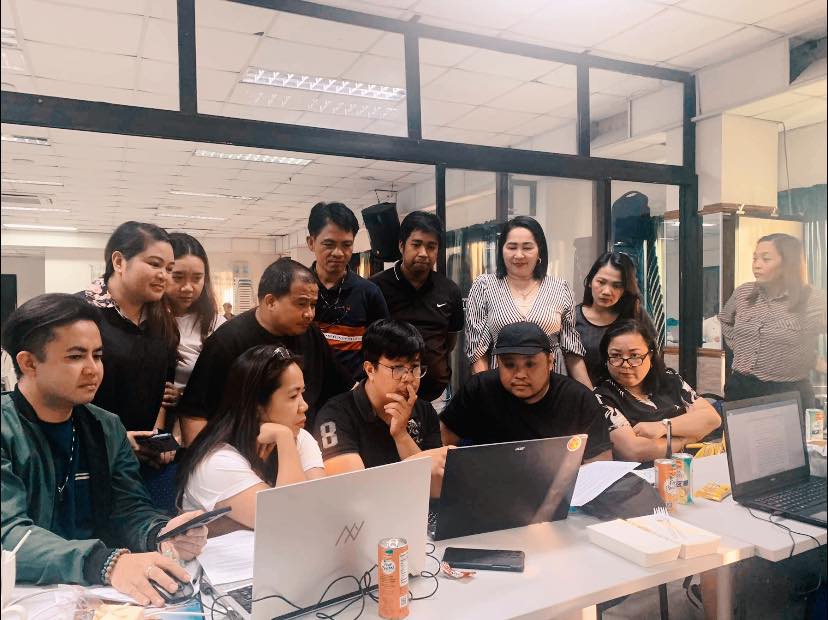
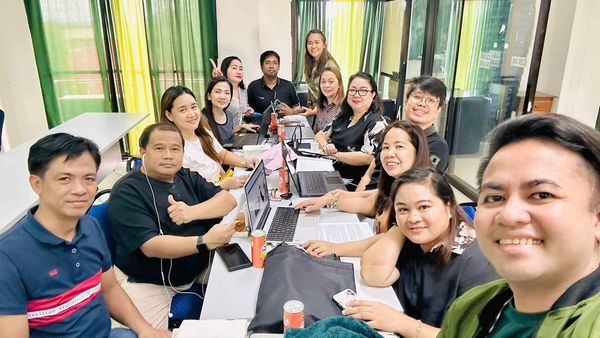
Workshop on the Development of Microlearning Prototypes
The five-day workshop, held from October 14 to 18, 2024, at the DepEd NEAP Region II facility in Tuguegarao City, aimed to equip participants with the vital skills needed to design and develop micro-learning prototypes. This engaging workshop focused on integrating digital learning tools into concise and targeted lessons, allowing educators to engage students more effectively through bite-sized learning formats.
Each day featured a structured schedule that included theoretical sessions on the first day, where participants gained valuable insights into fundamental concepts, followed by practical, hands-on development work in the second day. Key topics covered during the workshop included the principles of microlearning, effective content curation strategies, proficiency with various digital tools, and the basics of interactive design.
Participants worked collaboratively in teams to create their own microlearning prototypes, applying the knowledge and skills they had acquired throughout the workshop. These prototypes were then reviewed and refined through constructive feedback from both their peers and facilitators. The workshop not only cultivated an atmosphere of innovation and teamwork but also promoted ongoing feedback loops,
ensuring the quality, effectiveness, and relevance of the materials created. This hands-on experience equipped educators with valuable resources they can incorporate into their teaching practices, ultimately enhancing the overall learning experience for their students.
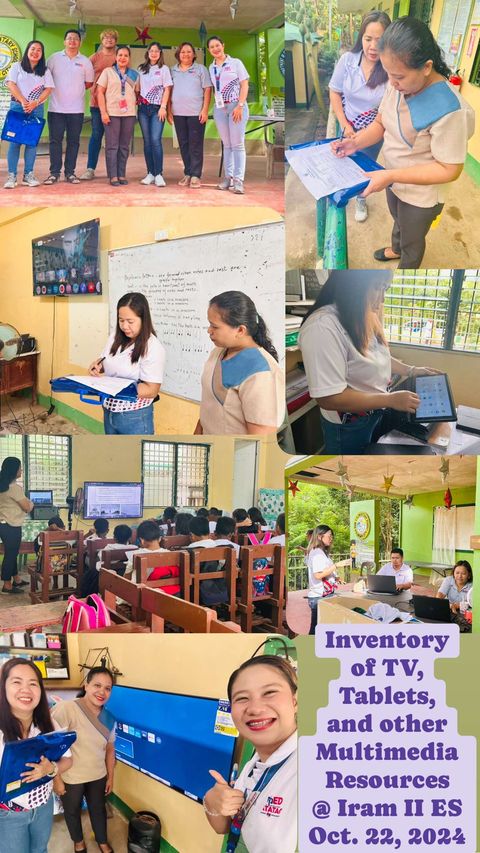
Division Memorandum No. 230, s. 2024 – Inventory of Tablets, Smart TVs, and Other Multimedia Resources
In response to Division Memorandum No. 230, s. 2024, the Schools Division Office (SDO) successfully completed a comprehensive inventory multimedia resource across all schools within the division. This initiative aimed to ensure accurate and up-to-date records of learning materials and devices, such as tablets and Smart TVs, to support equitable resource distribution and effective learning resource management.
Each school was instructed to complete the inventory checklist (Annex A) by providing essential details for each multimedia device, including device type, quantity, brand/model, current user, condition, and any noted issues. By the June 7, 2024, deadline, all schools submitted their checklists, which were reviewed and updated to reflect accurate records of multimedia and other resources. The Learning Resource Management and Development Section (LRMDS) Team also conducted random inspections to verify the reliability of the submissions, thus ensuring that data from all schools is consistent and accurate.
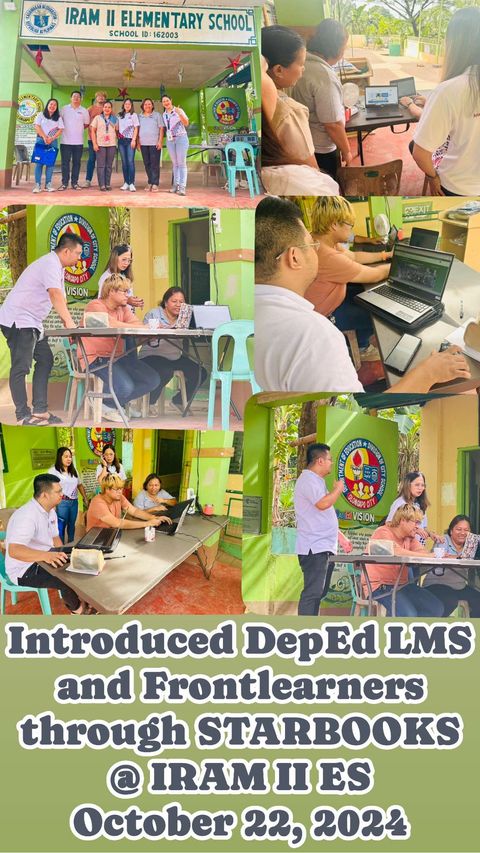
Introduced DepEd LMS and Front learners through Starbooks
Pursuant to Memorandum DM-CT-2024-268, titled “Development and Utilization of the Interim E-Library on the MATATAG Portal Learning Management System,” the Bureau of Learning Resources (BLR) developed the MATATAG e-Library, which served as the official repository of copyrighted digital textbooks and other DepEd learning resources. In line with this, the Learning Resource Management Section (LRMS) team under the Curriculum Implementation Division conducted orientations for each school to ensure the proper utilization of the system
